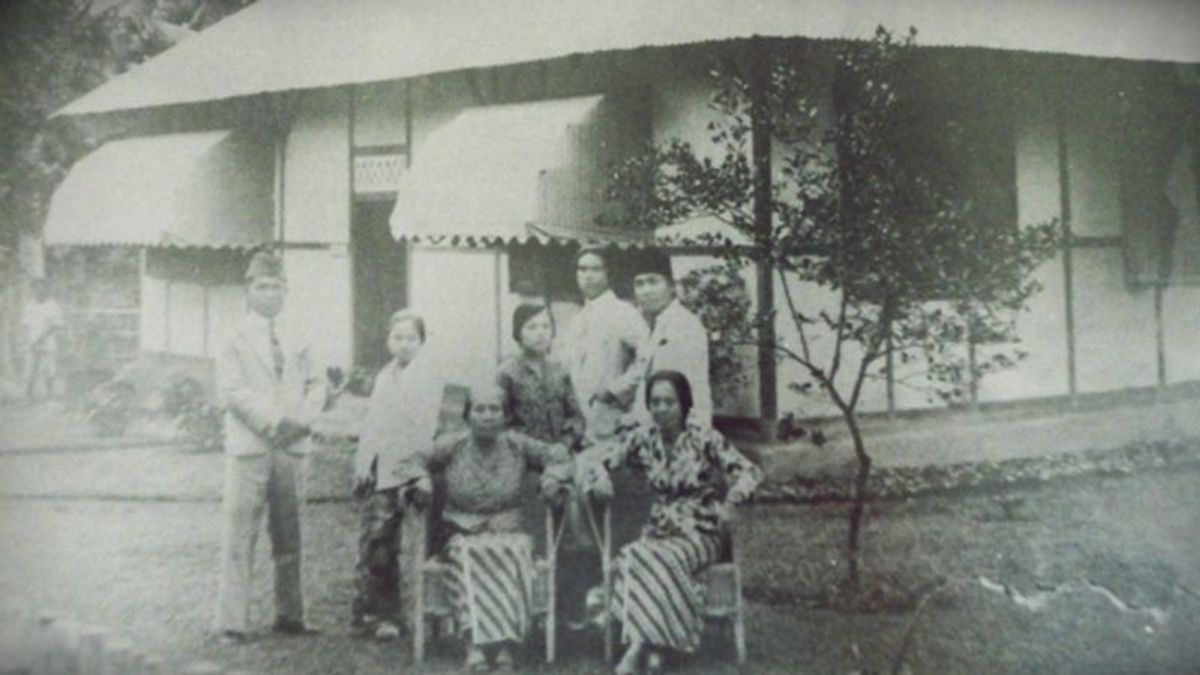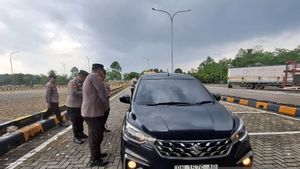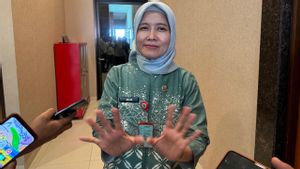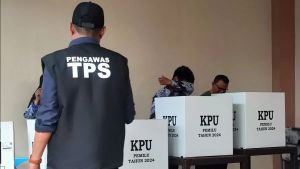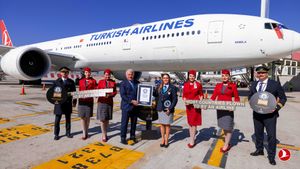JAKARTA - Soekarno's movement often troubled the Dutch. His ability to burn the spirit of the Bumiputra is considered second to none. The colonial government had a ploy. They wanted to reduce Bung Karno's influence. Prison and exile are magic.
In fact that tactic is not the answer. In exile Ende, for example. His guts did not shrink. Bung Karno actually had a lot of time to expand his influence. On the other hand, Bung Karno continued to perpetuate his hobby of bathing in the river. Wola Wona River, the name.
In the eyes of the Dutch, Soekarno was often labeled as a radical figure. Bung Karno is considered as one of the figures who dared to openly oppose Dutch imperialism and colonialism. All because of Bung Karno's young blood, who was often burned when he saw his people being colonized like cash cows. He also took advantage of every opportunity to burn the spirit of the natives.
His bold political orations made him famous. For the Bumiputra, Soekarno was famous because he was able to become an inspiration for the national movement. For the Netherlands it's the other way around. Bung Karno is actually categorized as a radical who must be crushed immediately. Because the risk is great. The Dutch could lose power in the Dutch East Indies because of Bung Karno's thunderous speeches.

The Netherlands also tactics. He wanted to immediately reduce Soekarno's influence in Java. Prison is the most likely option. Soekarno was immediately thrown into Benceuy Prison (1929), then Sukamiskin Prison (1930). The prison option was in fact unable to break Sukarno's guts.
In the midst of his lonely life in prison, Soekarno did not give up. He continues to mature and sharpen his mind. He continued to expand his influence in prison. In fact, the momentum of his trial at the Bandung Court was like Soekarno's political stage through his popular plea: Indonesia Sues. The Netherlands was furious. The option of exile to Ende (1934) was chosen by the Dutch.
"The expulsion of Soekarno to Ende also had an impact on regional movements. Many members of the movement who secretly took advantage of the opportunity to make contact with Soekarno were exiled to Ende. Although the Dutch colonial government carried out strict supervision because it was feared that the influence of the non-cooperative movement would spread, the movement did not lack reason.”
“Among them from Kupang, N. Saduk Ofmatan went to Ende secretly to study politics with Soekarno. Soekarno used every opportunity to provide political awareness, for example tactics in dealing with the guards, he was always invited to tell stories about heroes from the area where the guards came from to raise national awareness," wrote the book History of the National Awakening of the East Nusa Tenggara Region (1978).
The Consequences of a Well Too DeepBung Karno arrived in the exile of Ende, Flores in 1934. He and his family boarded the Jan van Riebeeck ship for eight days. At the beginning of his arrival, Ende was considered an open prison. There all political activities cannot be perpetuated.
Ende is like an isolated area. The absence of telephones and telegrams reinforces that assumption. However, there is no way that can turn off Bung Karno's spirit. He began to feel at home living in Ende. He began to study his surroundings. Mainly his exile home environment in Ambugaga.
He didn't lose his mind either. Bung Karno used the route of sending letters by post to continue his influence in the lands of Java. While in Ende itself, Bung Karno invited many local residents to discuss. In fact, regional fighters.

This method kept Sukarno's influence intact. Aliases are expanding. Along with that, Bung Karno increasingly enjoyed life in Ende. He perpetuates many new hobbies. Bathing in the river, one of them. The activity was considered quite fun.
“In the town of Ende there is an even smaller village, consisting of huts with thatched roofs, called Ambugaga. Ambugaga Street is very simple, so the encroachment area where my house is located is not named.”
“There is no electricity, no running water. When I want to take a bath I take soap to Wola Wona, a river with cold water and in the middle there are boulders of stone. Around and next to this house there are only banana, coconut and corn plantations. On the whole island, there are no cinemas, no libraries or other kinds of entertainment,” concluded Soekarno as written by Cindy Adams in Bung Karno's book: Connecting the Tongue of the Indonesian People (1965).
Every day Bung Karno chose to take a bath. Like the people of Ambugaga in general. At first Bung Karno chose to bathe in the river because the well behind his house was quite deep. As a result, bathing in the river is the easiest and most enjoyable option. In fact, the activity of bathing in the cold water was favored by Big Brother.

Not only Soekarno, his family who went to Ende including his wife, Inggit Garnasih also liked to bathe in the river. Bathing in the river is one of Inggit's entertainments in exile. Especially when traveling to the river he can enjoy the beautiful panorama of Ende carefully.
“There is no electricity in our house, which we rented from Haji Abdul Amburawuh, someone who is quite well off. We use kerosene lamps and the one in charge of controlling the lamps is Omi (Soekarno's adopted son: Ratna Djuami) who is already good at helping us in the kitchen."
“The yard is quite wide, so we can grow crops, garden vegetables and flowers. Around the house there are banana, coconut and corn trees. There is a well, but it's deep. When we take a bath, we prefer to go to the bathhouse in Wola Wona, a river with cold water and big rocks in the middle," concluded Inggit Garnasih as written by Ramadhan KH in the book Kuantar Ke Pintu: The Love Story of Ibu Inggit and Bung Karno ( 1988).
The English, Chinese, Japanese, Arabic, and French versions are automatically generated by the AI. So there may still be inaccuracies in translating, please always see Indonesian as our main language. (system supported by DigitalSiber.id)
